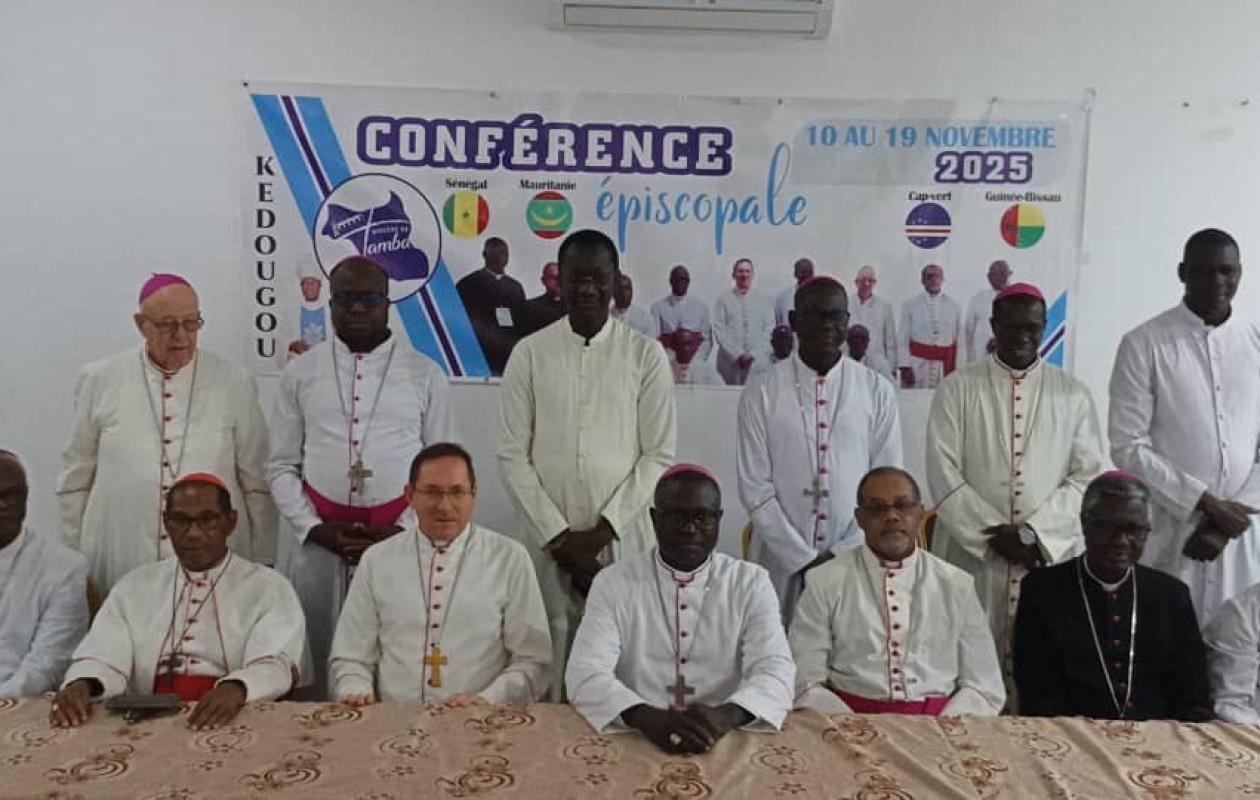
Clôture de la session ordinaire de la Conférence épiscopale : Monseigneur André Guèye appelle à une Église synodale engagée pour la justice, la paix et le bien commun
The ordinary session of the Episcopal Conference, which includes Senegal, Mauritania, Cape Verde, and Guinea-Bissau, concluded this Friday, marking an important milestone in the life of the Catholic Church in the sub-region. At the close of the proceedings, Archbishop André Guèye of Dakar, First Vice-President of the Episcopal Conference, delivered the conclusions of this pivotal meeting, which focused on synodality, pastoral mission, and the socio-political challenges facing Christian communities.
A dynamic of synodality at the heart of the universal Church
According to Bishop Guèye, the session was fully in line with the dynamic of synodality, a central concept of Pope Francis's pontificate. "To live synodality is to walk together, to work together, to be in closer communion with one another," he reminded them. This vision of a participatory and fraternal Church is also the guiding thread of the 2026 Lenten message adopted by the bishops.
For him, a synodal Church is a Church where each faithful person, autonomous and responsible, contributes to the common mission, whether in the proclamation of the Gospel or in the commitment to justice, peace and the common good.
Kédougou, a mission area at the heart of concerns
The Episcopal Conference has paid particular attention to the Kédougou region, which it considers a mission area requiring a strengthened ecclesiastical presence.
Bishop Guèye stressed the need for more visible and impactful pastoral action:
"We are convinced of the importance of having more priests and nuns here, not only for evangelization, but also for social ministry."
He recalls that social pastoral care is the concrete presence of the Church among the most vulnerable: in schools, clinics, mutual aid actions, economic promotion, and support for young people.
"To get closer to God, we must also take care of people without distinction," he emphasizes.
A strong call against corruption and mismanagement of resources
Taking advantage of this meeting, the bishops sent a clear message to the public authorities. "Without transparent management of resources, there can be no development," stated the Archbishop of Dakar.
The Episcopal Conference is therefore calling on the governments of the sub-region to fight effectively against corruption and mismanagement, particularly concerning natural resources, a major issue for the future of the populations.
The bishops also emphasized the need to offer young people real opportunities for development in their local communities.
"There is no greater happiness than living with one's family in dignified conditions," Bishop Guèye emphasized.
The Conference also drew attention to the growing precariousness in several countries of the region and the dangerously increasing terrorist threat at the borders. The bishops called for collective awareness and mobilization of all stakeholders to preserve peace, peaceful coexistence, and stability.
A Church mobilized for the common good
In conclusion, Bishop André Guèye reaffirmed the Catholic Church's commitment to remain alongside the people, faithful to its spiritual mission but also deeply involved in building a more just and more united society.
The ordinary session of the Episcopal Conference thus concludes with a call for communion, responsibility and action, in the service of justice, peace and the common good throughout the sub-region.
Commentaires (1)
Merci chers Pères Évêques !
Participer à la Discussion
Règles de la communauté :
💡 Astuce : Utilisez des emojis depuis votre téléphone ou le module emoji ci-dessous. Cliquez sur GIF pour ajouter un GIF animé. Collez un lien X/Twitter, TikTok ou Instagram pour l'afficher automatiquement.